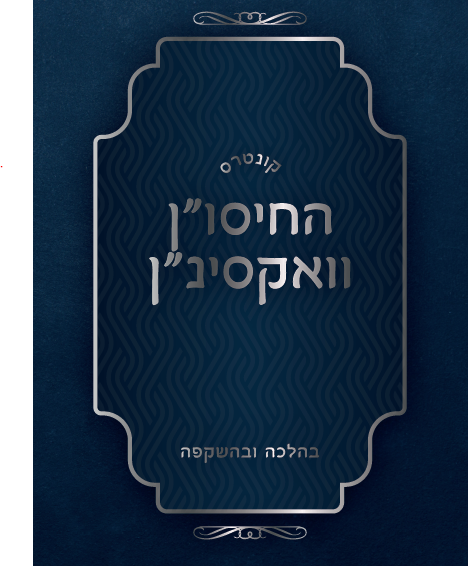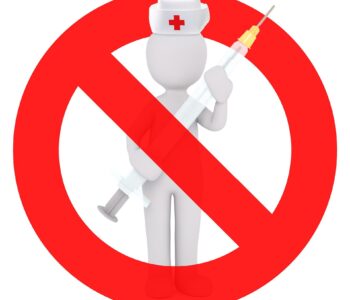
The following is the preface to a document in both Hebrew and English – English starts from page 72.
The author prefers to remain anonymous. The document is without copyright, can be printed and shared.
Preface
Halachic rights
Although vaccines may offer substantial benefits, they are not free of side-effects and risks. Even pharmaceutical companies and the medical community concede that serious adverse reactions and death may sometimes occur from vaccinations. This brings to mind the following: A heart patient is failing, ר”ל , and his doctor only gives him a few more weeks to live. The doctor offers the patient the option of undergoing heart surgery
that could give him a new lease on life. The surgery is successful in 35% of cases, but in 65% of cases the patient does not survive the operation. A doctor may recommend such an operation without hesitation, arguing that the patient is dying anyway and that this surgery gives him some good chances of survival. But the הלכה says otherwise, for there is here a חשש of איסור חמור דרציחה . Although הגאון הרב חיים עוזר זצ”ל held it is permitted to undergo the surgery even if the chances of survival are less than the risks of death, the משנת חכמים and אגרות משה held that unless the chances of survival and cure are over 50%, such an operation may not be permitted1 (the אגרות משה concludes that, 2”כיון שהאחיעזר מתיר, מי יוכל למחות במי שרוצה לסמוך עליו” ). Even according to the view of the אחיעזר , Hagaon Horav Elyashiv, Shlita, requires a minimum of 30% chances of success in order to allow a risky surgery3. Even if the rate of survival is 50% or more, although the patient may undergo the surgery, he is not always obligated to do so. According to the אג”מ (יו”ד ח”ג סי’ ל”ו ), even though he is anyway in סכנת נפשות , he is only obligated to undergo the surgery where the chances of success are greater than the chances of failure.
But this is all in regards to someone who is seriously ill. What about an individual who is perfectly healthy but is offered to undergo a medical procedure for the benefit of someone else? For example, if a person has suffered kidney failure and dialysis is not really an option for him, can we obligate his brother to donate a kidney in order to save his life? Can we obligate someone to assume a small risk in order to save a dying person? Although the ירושלמי holds that one must undertake a risk to his life in order to save someone else from certain death4, the סמ”ע (חו”מ סי ‘ תכ”ו סק”ב ) writes that the מחבר and רמ”א omitted this opinion because the בבלי disagrees, and that this is also the …
English starts from page 72.
The author prefers to remain anonymous. The document is without copyright, can be printed and shared.









